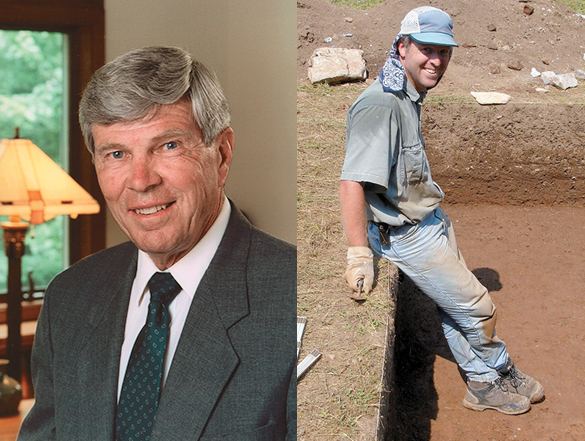
Renowned Civil War scholar James McPherson says it’s a historian’s job to get beyond the myths that people hold and “closer to some kind of reality.” In his most recent book, excerpted this issue, he looks at the reality beyond the myths that surround one of the Civil War’s most pivotal players, Jefferson Davis. He examines Davis’s role as commander in chief and as the figure who shaped and articulated “the principal policy of the Confederacy….the quest for independent nationhood.” McPherson believes the issues that resulted in the 1860s disunion are “still important in American society today: regionalism, resentment of centralized government, debates about how powerful the national government ought to be and what role it ought to play in people’s lives.”
Wayne Lee spent his first few years after college in the army as a combat engineer and served in the Gulf War before returning to academia. In addition to being a professor specializing in military history at the University of North Carolina, he has also had a 20-year career as a field archaeologist, with a long interest in the origins of war. He shares some of his research in our cover story, “When Did Warfare Begin?” Lee’s most recent, coauthored book, Light and Shadow: Isolation and Interaction in the Shala Valley of Northern Albania, deals in part with the way blood feud codes regulate violence within and between communities. It was awarded the scholarly book of the year (2014) by the Society for American Archaeology.
A frequent contributor to MHQ’s War List and Laws of War, Marc DeSantis traces his deep interest in the history of war to a childhood episode. “I was seven and watching the movie Patton with my grandfather Jerry. He’d lived some of the things in the movie firsthand, because he’d served as a combat engineer with Patton in Czechoslovakia as the war in Europe ended. He also had immense admiration for Patton as a strong, aggressive general, the kind of guy you want in war.” Recently, DeSantis gave up the practice of law to devote his full attention to military history—particularly of the ancient world. He is currently working on a book about Roman naval power during the Punic Wars.

.jpg)



